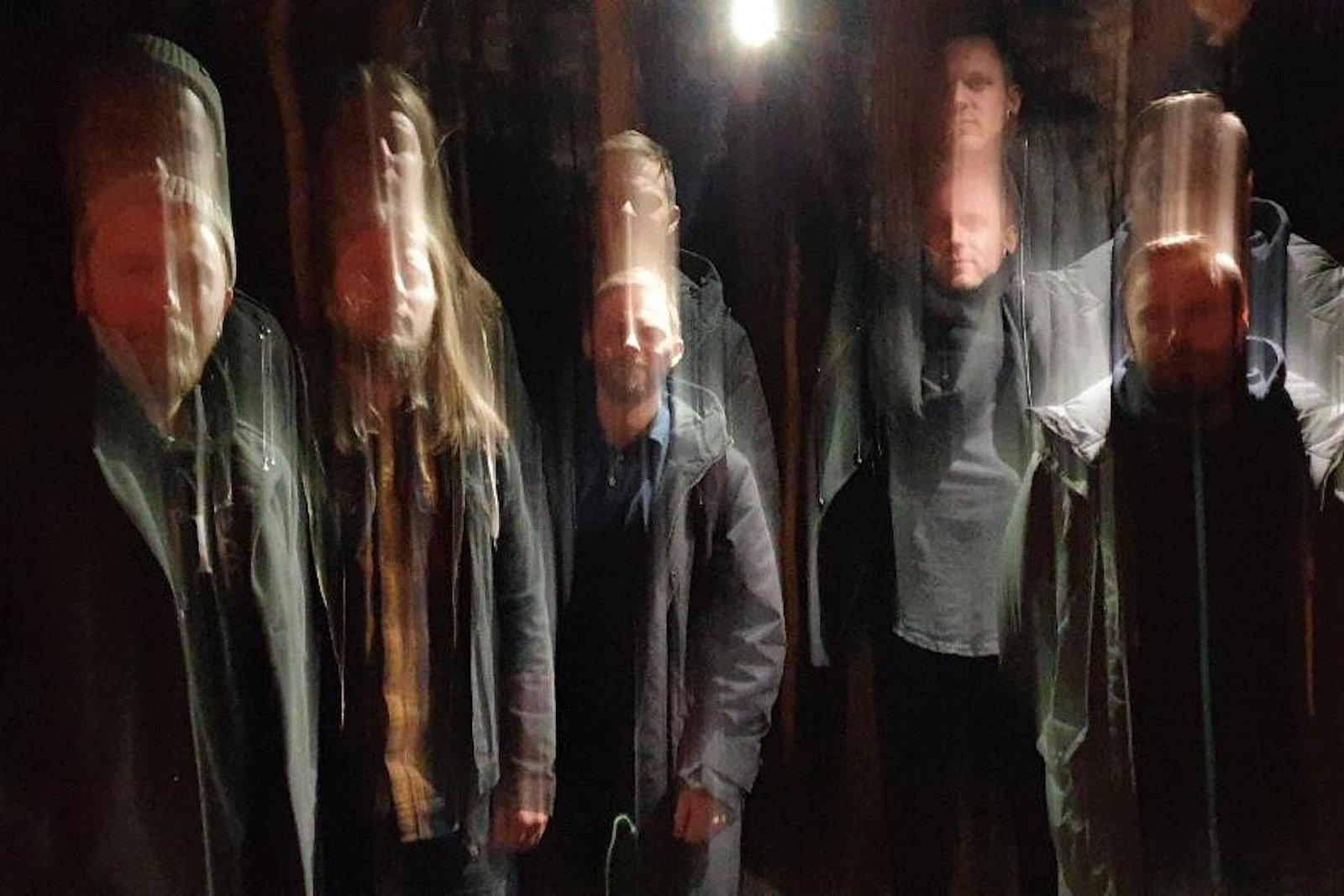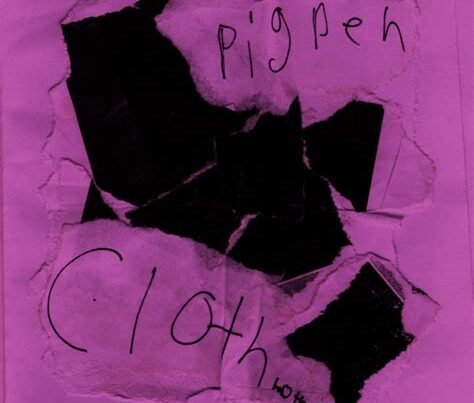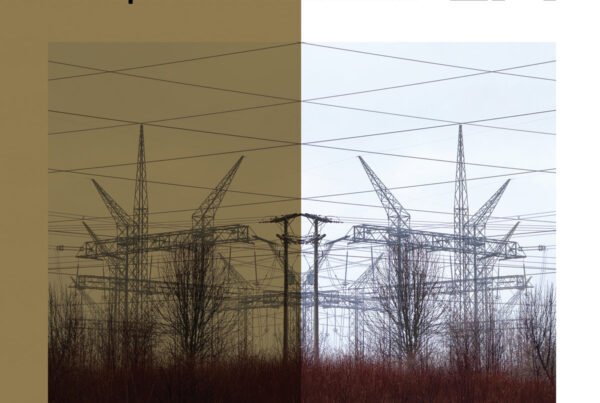Vildhjarta make their graceful return with a gorgeously bleak cataclysm of an album: måsstaden under vatten.
Release date: October 15, 2021 | Century Media Records | Facebook | Stream/Purchase
Vildhjarta are one of those groups that have been doing their own thing that’s as far removed from the rest of the music world as can be. Following the likes of Meshuggah, they have created quite the name for themselves with their sinister, inharmonious brand of progressive metal that has never failed to put fans under a hypnotic spell. It hasn’t been very long since its release, and I still cannot believe that Vildhjarta has actually put out the long-awaited successor to Måsstaden, excluding the Thousands of Evils EP of course. What was once a mere fable has finally become reality: måsstaden under vatten is here.
Djent as a whole is astonishingly oversaturated with bands that sound exactly like one another; well, you could say that about any genre to be honest. Like any genre or specific musical niche, there are always artists that make it a goal to set themselves apart from their counterparts. Love them or hate them, Vildhjarta stand out from the rest, and måsstaden under vatten is further testament to that. Their ability to create the most menacingly technical, mind-melting instrumentals over the gloomiest ambiance that lingers in the background is unrivaled. Although equally, if not even more catastrophic than Vildhjarta, this dynamic nature of the music is something that sister-band Humanity’s Last Breath fails to capture to the same degree. I do recognize that the musical ‘objectives’ are wholly different between the two projects, but even then, HLB doesn’t click for me while Vildhjarta just does.
Vildhjarta’s music takes you through the most crushing moments imaginable, yet they provide plenty of air to breathe while you wallow in disturbingly gorgeous atmospheric sections. Often, I find their music to be at its most powerful when the catastrophically heavy moments collide with haunting undertones. On Måsstaden, the track that perfectly exemplifies this musical collision is “All These Feelings”, a dizzying spiral into the depths of hell. With how unique yet seemingly all over the place their style is, I guarantee that you could immediately identify any song of theirs as their own, even without having heard it prior. That fact alone goes to show they’ve engineered a sound that is theirs and theirs only.
One of the most enchanting things to me about Vildhjarta is their penchant for composing these immensely dense yet luscious soundscapes amidst all the chaos (or should I say kaos?); they really went all in on that here on måsstaden under vatten. Almost always, these atmospheric passages are so deeply unsettling, yet it never fails to instill this inner feeling of tranquility within me. This goes to show the dynamic range that this band is capable of, as well as the inherent duality of the music itself. Despite the sonic apocalypse that is unraveling at almost every moment throughout this record, I cannot help but feel at peace during each and every second. It is a completely unexpected and unexplainable form of therapy to me.
Perhaps this havoc-induced therapeutic effect is due to the underlying 4/4 time that is maintained through the cymbals whilst the polyrhythms galore never let up; this rhythmic consistency or ‘simplicity’ is what makes these dense songs much more digestible than they should be. It is surprisingly easy and comfortable to bob or bang your head along to that beat, and that feeling is beyond satisfying. Clocking in at eighty minutes, måsstaden under vatten is nowhere near as exhausting as it should be, but that doesn’t mean that it isn’t tiresome from time to time. The heavy instrumentals are without a doubt very one-note, with all the variation coming from the discordant guitar techniques (to put it simply) that fill in the negative space between the complex chug patterns, all on top of the lingering atmospherics. I cannot emphasize it enough, but the ominous soundscapes are what keeps me coming back to this album, as the music wouldn’t be very listenable without them.
One thing that makes måsstaden under vatten feel familiar and thus more digestible is the fact that several musical motifs are repeated throughout the album. Although lead single “den helige anden” has been out for nearly two years now, the track’s main melodic motif is referenced in several other songs, including “lavender haze”, “brännmärkt”, and “heartsmear”. Not only that, but the twinkling guitar that closes out “kaos2” is also referenced in “måsstadens nationalsång (under vatten)” and “vagabond”. These musical callbacks make this album feel as if it is constantly coming full circle, which is all the more gratifying than just a collection of erratic songs. You could call it a recycling of musical ideas, but it isn’t like there is a lack of musical ideas on this record at all – quite the opposite, truth be told. We’ve had plenty time to acquaint ourselves with some of the singles, and it’s beyond satisfying to see how all these songs come together to create something so mystical and grandiose.
There are so many special moments sprinkled in throughout måsstaden under vatten that I could about speak for days, but the song that knocked the wind out of me was “måsstadens nationalsång (under vatten)”. Given that this album is a sequel to Måsstaden, it makes perfect sense that this particular track is a medley full of callbacks to that album, and I am sure it is something no one was anticipating. Considering how the song opens up in a dreary manner, I was not expecting the opening riff from “Shadow” to come out of nowhere and leave me absolutely baffled, just as I was when I first heard Måsstaden. I can’t properly explain how, but it truly felt like I was listening to Måsstaden again for the very first time; something I never would’ve thought to be possible.
Another track that left me in complete awe was “brännmärkt”. Once I heard the main melody from “den helige anden” referenced in this song, it left me feeling euphoric, but I’m sure no one was expecting that exact passage to suddenly shift to double speed, and yet that is precisely what happens here. There is a brief shift from when that motif is first introduced here to when it kicks into overdrive at a much faster tempo. Given how deliberate and fast this melody and rhythm already is, I never would’ve guessed Vildhjarta would go as far as to play it even faster. This moment was even more powerful simply due to the fact that “brännmärkt” refers to a melody that we’ve already well acquainted ourselves with in anticipation for this new album.
At the end of the day, Vildhjarta stick to doing what they do best on their newest effort. They haven’t pushed the envelope any further on this record than they already did years ago, they just continued on with their trademark dark fantasy form of pure musical devastation. In reality, måsstaden under vatten is just more of the same, but this is exactly is what fans wanted from them. Knowing how hype leads to disappointment more often than not nowadays, it is comforting to have my high expectations met with this new record. I will admit that it would’ve been nice to see them change it up a bit and give us something with a little more variety, especially after all these years, but at least they’re back, and hopefully we don’t have to wait as long for the next one.
If you’ve never been fond of Vildhjarta to begin with, måsstaden under vatten won’t change your mind at all, since the music here is more of what they’ve always done, albeit highly polished in this case. You’ve likely heard the saying ‘if it ain’t broke, don’t fix it‘, and this couldn’t be any more applicable to Vildhjarta. There is just something about this album that is like picking back up right where you left off with an old friend that you haven’t spoken to in years. Despite the constantly ensuing chaos, there remains this sense of familiarity to it that is incredibly comforting, ultimately making this ten-year wait undeniably worth it if you ask me.






